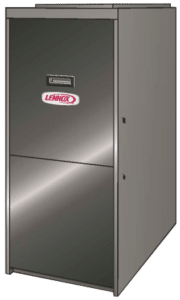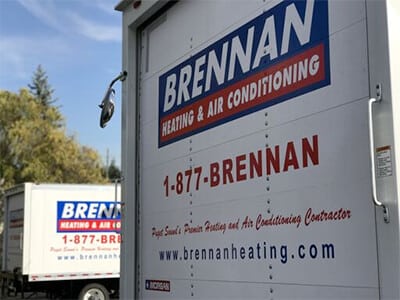Seattle’s Source for Boilers

Hydronic heat lets you choose from several different devices that use these two heating processes. Hot water from a boiler can be piped to radiant tubing hidden in the floor, to slim baseboard radiators, or to stand-alone radiators. Hot water can also be circulated through a coil in your central air conditioning unit to heat other living spaces with warm air. Plus, hydronic heating produces more hot water for cooking, washing, hot tubs, swimming pools, and even radiant sidewalks and driveways to melt ice and snow.
Advantages of Residential Boiler Heating Systems

- Clean form of heating that doesn’t produce dust particles and other allergens. Since heat in a boiler system radiates out from the radiator into air that already exists, no new air is entering the space. In forced air systems, the new air is what oftentimes causes dust and allergens to infiltrate the atmosphere.
- Comfortable, high-quality heat is what you get from a boiler system. Heat from a radiator infuses the room, opposed to being forced through ductwork and out a vent. This gives radiator heat a different, fresher feeling than forced air systems and disperses the heat more evenly.
- Special features like user-friendly programming and zoning capabilities are a major benefit. Users can distinguish various heating zones within the home based on living space usage patterns. Programmable thermostats enable the automating of start-stop heat delivery as well.
- Quiet operation is another perk of boiler systems. Unlike forced air systems that produce noise as air circulates out the vents, a boiler heating system’s operational noise is confined to inside the boiler. The rest of the system is virtually silent.
- Longevity of a boiler heating system depends on several factors. The system must be well-maintained and annually serviced to keep it performing efficiently. Some boiler systems last only 10 years, others may last several decades. It’s all about the regularity of service and inspections to keep a system maintained for the long run.
How Important is Maintenance?
Just like forced air systems, boilers require inspections, maintenance, and the occasional part replacement to extend lifespan and maintain efficiency. If you are considering upgrading your system, it’s possible to keep your existing unit. Brennan Heating & Air Conditioning is highly experienced at installing new boilers and retrofitting original systems in and around the Seattle area, which boosts efficiency, as well as increases the safety of the home.






